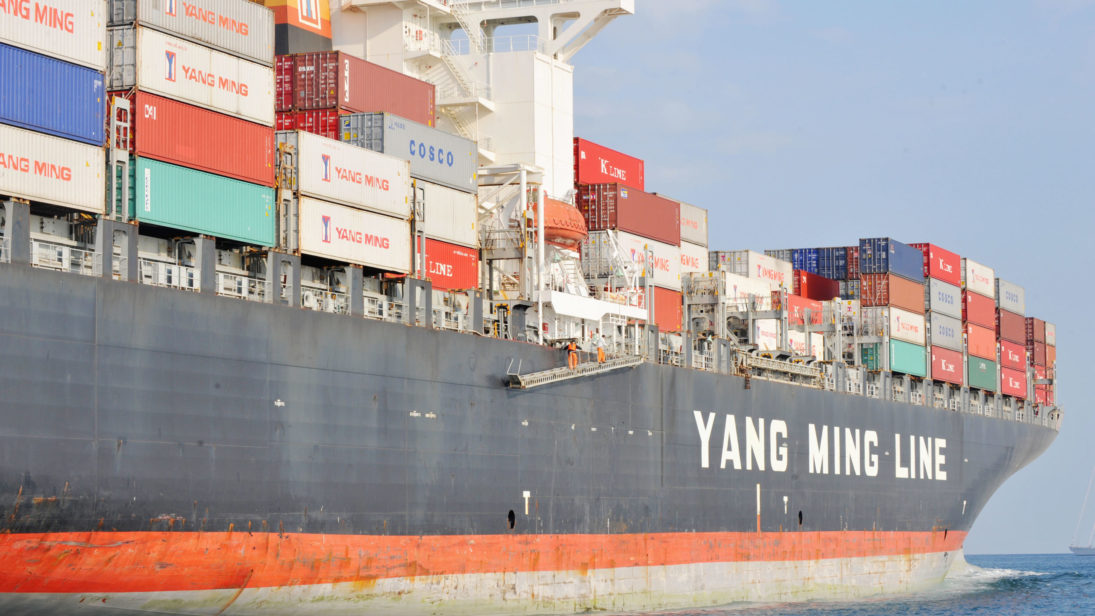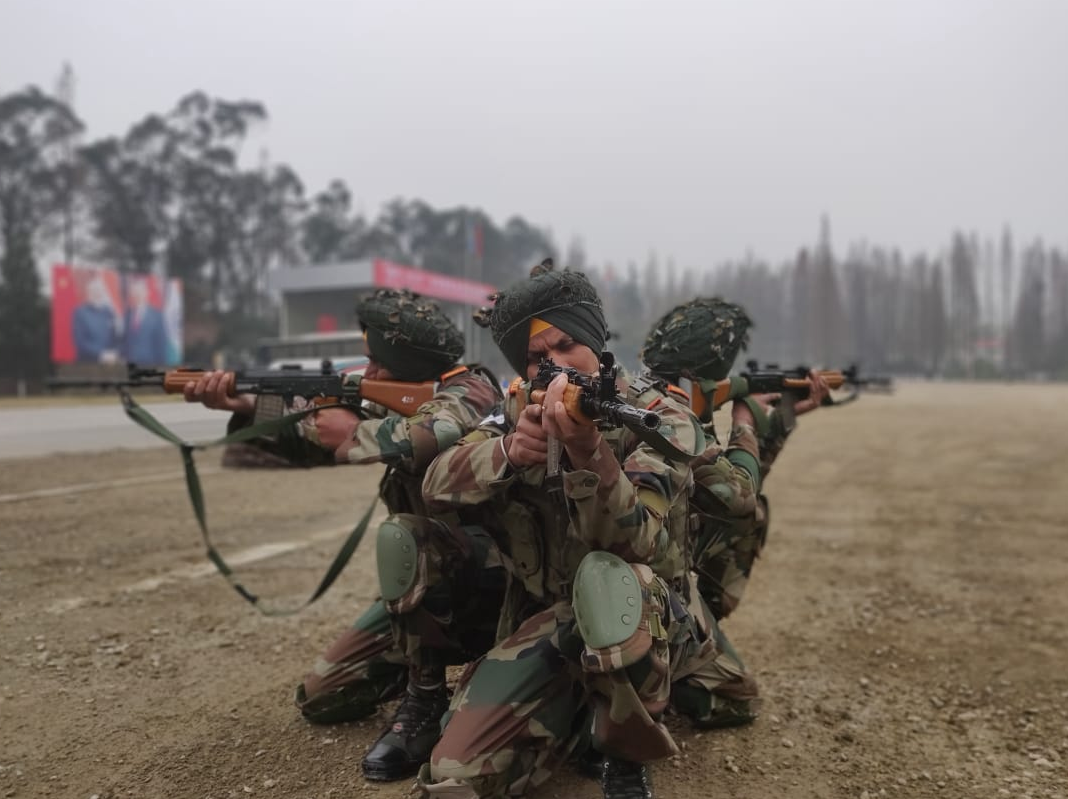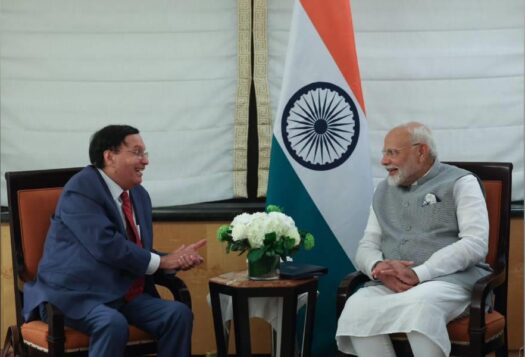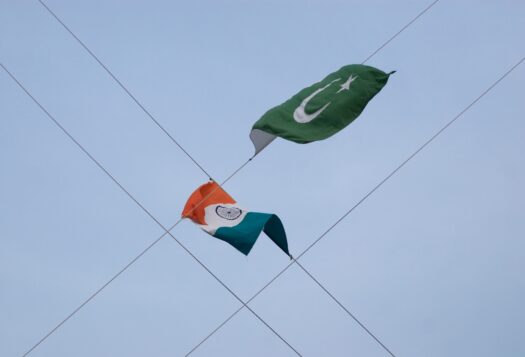
The detention and subsequent seizure of an autoclave onboard a Chinese ship en route to Pakistan made headlines in February. India’s Defense Research and Development Organization (DRDO), confirmed that the autoclave — a pressure chamber used to manufacture the composite lining in solid fuel ballistic missiles which aids the missile’s ability to withstand launch — was potentially dual-use (civilian and military) and had been mislabeled as an industrial dryer. This incident reiterates India’s concern around the growing nexus between China and Pakistan. Given the history of animosity with Islamabad and Beijing respectively, it is evident that the growing nexus between the neighboring adversaries should be a point of concern for India’s national security planners. There has been ample discussion and debate on how to respond to New Delhi’s neighborhood security concerns. With the strategic implications of a stronger China-Pakistan alliance, India would benefit from reconfiguring its military planning towards approaching this alliance as a dual-front as opposed to the current military posture which treats China and Pakistan as separate strategic adversaries.
China as Pakistan’s “all-weather ally”
Since the 1970s, Pakistan’s nuclear ambitions have been facilitated by China’s nuclear and missile-related assistance. China’s assistance in Pakistan’s nuclear weapons program has been key in Islamabad’s ability to develop a nuclear triad, with land, air, and sea capabilities. It is a well established argument within India’s policy and planning community, that Pakistan would be severely restrained in achieving its current level of nuclear capabilities without the support it has consistently received from China.
India’s unresolved strategic and military issues with both countries respectively have been a central tenet in India’s national security policy. However, the growing nexus factor has not received adequate attention in the potential role it plays in the rising threat of conflicts in South Asia.
India’s unresolved strategic and military issues with both countries respectively have been a central tenet in India’s national security policy. However, the growing nexus factor has not received adequate attention in the potential role it plays in the rising threat of conflicts in South Asia. Over the years, the tension between India and China has intensified over China’s support for Pakistan on the issue of Kashmir, the increasing presence of the Chinese navy in the Indian Ocean, and over border disputes such as ones leading to the Doklam standoff. China’s increasingly aggressive military posture and support for Islamabad suggests that is seeks to contain India’s strategic status in the region and also ensure its own superiority. It is evident that Beijing’s intentions through nuclear and military assistance to Pakistan are part of China’s intentions to achieve this aim.
Several incidents in the past few years have pointed towards the increase in military coordination between China and Pakistan. At the beginning of 2020, the two countries completed a nine day naval exercise (called operation Sea Guardians) which involved “special forces, warships, aerial assets and, for the first time, submarines in a series of live-fire exercises.” China’s assistance was also crucial in the successful development of Pakistan’s Shaheen II medium range ballistic missile. According to the DRDO’s analysis, the seized autoclave could be used for the aforementioned Shaheen II missile. The autoclave seizure in this regard adds to the growing concern in India surrounding the Pakistan-China relationship. It is also an important example of the potential increase in covert military (more specifically nuclear) interactions between New Delhi’s adversaries and requires India to take a look at the serious gap in its military preparedness and national security approach as a whole.
Additionally, China has developed a strong and extensive military system over the past few decades. Beijing’s increase in military exercises in Tibet as well as overall improvement of border infrastructure has been of particular concern to India. With China’s rising support for Pakistan and increase in supply of military expertise and equipment, it is evident that New Delhi may need a strategic rethinking in its approach to the two countries. It has been noted that India is not well equipped at the military level to counter a threat from both China and Pakistan. India is now the third largest military spender in the world, and analysts have pointed to the competition and tension with Pakistan and China as the main motivations for growing military expenditures.
India is beginning to articulate the impact of a two-front alliance on the country and the need for the military to account for it in its planning process. India’s Army chief General Naravane discussed the importance for India to “cater for the scenario of a two-front war with China and Pakistan.” Similarly, Chief of Defense Staff General Rawat mentioned that the Indian military plans to reorganize existing commands into new theater commands to account for the security threats along its borders with China and Pakistan. However, as the imbalance in military capabilities and border infrastructure tilts in favor of China, India faces a number of challenges in countering these threats. Although India has a large budget for military expenditure, there are competing demands for improvements to border infrastructure and demands from all three branches of service for more modern and sophisticated weapons and delivery systems. If India wants to meet these demands and begin accounting for a two-front alliance, it would be beneficial for India’s increasing military expenditure to reflect improved military preparedness against the two neighbors separately and as an alliance.

COVID-19’s Implications on a National and International Response
However, the COVID-19 pandemic has shifted domestic and international focus towards tackling the health crisis. With the world grappling with the consequences emerging due to the pandemic, there has been limited attention towards the China-Pakistan relationship in the military domain.
The autoclave incident provided India with an opportunity to bring attention to the growing nexus through international diplomatic channels and potentially put a strain on China-Pakistan relations. Given the intense scrutiny China is currently facing due to the pandemic, additional focus on China’s military activities could work to deter the Beijing from intensifying its support for Pakistan. The past and present strength of China-Pakistan relations demands India address the challenges posed at a national and international level, collectively, in order to deter further deepening of ties between the two. The ongoing global pandemic has pushed countries to focus inwards to deal with the virus and therefore, there has been a halt in the potential to address India’s concerns with the autoclave incident, non-proliferation, and the cooperation.
The rising economic implications of the pandemic may also result in a systemic shift in the current world order which may have deep impacts on military planning, prioritization, and expenditure. However, as the world tries to conceptualize the post-COVID landscape, it would be useful for India to look to how the changing perceptions of China can bolster India’s stance at international platforms in countering the China-Pakistan nexus. In a post-COVID world, New Delhi is presented with an opportunity to make use of the autoclave incident and shifting perceptions of China to put more pressure on China-Pakistan ties.
As India looks towards indigenous arms production, it would be useful to (re)organize military expenditures to sustain their requirements whilst re-envisioning the military’s deployment, interoperability, and organization to account for the China-Pakistan nexus.
What can India do Next?
India has emphasized the need for military preparedness against China and Pakistan. However, national security planners will need to be mindful of the deeper implications of a two-front alliance in the face of possible future conflicts. The inadequacies of India in the military balance with China extend to a conflict with Pakistan as the relationship between Beijing and Islamabad strengthens. In 2019, India’s defense budget was around USD $71 billion, however the COVID-19 pandemic and its impact on the Indian economy has resulted in the possibility of a 40 percent cut in military expenditure. The strains on India’s economy require a sustainable approach to the alliance. As India looks towards indigenous arms production, it would be useful to (re)organize military expenditures to sustain their requirements whilst re-envisioning the military’s deployment, interoperability, and organization to account for the China-Pakistan nexus.
It is important to acknowledge the present and future impact of COVID-19 on India’s concerns about the China-Pakistan nexus. Furthermore, the pandemic and its economic implications may have an impact on the domestic situation of China and Pakistan, as well as their bilateral relations. However, it is unlikely that China-Pakistan cooperation will fizzle out in the near future. It would be in India’s best interest to keep a close eye on the developments in the relationship as well as map out a plan to address New Delhi’s concerns at international platforms. More importantly, the autoclave incident should act as an important reminder for the need to promote the country’s security interests through political exchanges with its allies, in addition to military transformation and improvement. In the midst of uncertainty, it is important to remain mindful of the long-term impact on India’s national security as a result of disregarding the perils of stronger China-Pakistan relations.
***
Click here to read this article in Urdu.
Image 1: International Labour Organization via Flickr
Image 2: Additional Directorate General Public Information-Indian Army via Twitter


